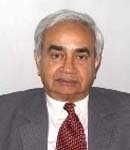Benazir's Assassination and the Future of Pakistan
14 Jan, 2008 · 2469
P R Chari assesses how events are likely to turn out for Pakistan in the wake of the killing of Bhutto
Munir Ahmed Khan, former Chairman of Pakistan's Atomic Energy Commission, had a unique explanation for why Zulfiqar Ali Bhutto was hanged. "Not for the reasons people keep talking about," he said, "but because he stopped being a wadera." In Sindh, he explained, the waderas - the large landowners - are uncompromisingly feudal, arbitrary in their dealings with others, brutal with their serfs, extravagant with their wealth, and profligate in their ways. All perfectly excusable; indeed, expected of waderas. What the establishment - Pakistan's Army, landlords, and some business houses, all interlinked by marriage and self-interest - found inexcusable in Bhutto was his socialist pretensions. His efforts thereafter to exercise personal control over the Army after its debacle in East Bengal in 1971 completely alienated the establishment and catalyzed his march to the gallows.
Much the same sequence of events has led to the assassination of Benazir Bhutto who was essentially also a wadera. The establishment's angst regarding her was fuelled by her ultra-closeness to Washington, and her pledges to curb fundamentalism and to let the Americans interrogate A Q Khan, which would have unraveled the Pakistan Army/ISI role in running its nuclear Walmart. Most likely, renegade elements in the establishment, in collaboration with jihadi elements, committed the foul deed. But the complicity of the establishment is clear from their cover-up operations including no postmortem and hosing down of the crime scene, the mystery of why no flanking cars or security personnel protected her vehicle leaving the Liaquat Bagh, and the contradictory versions of how she died - gunshot, skull fracture or bomb blast - all very suspicious circumstances. The truth may ultimately emerge; but, equally possibly, the truth may remain buried forever like many other political assassinations in Pakistan.
That Benazir was no democrat is clear. She had anointed herself lifetime Chairman of the Pakistan Peoples Party (PPP), and retained an iron grip over its organization, even during her long years in exile. The party functionaries left behind faithfully carried out her dictates in her absence. These party faithful have been easily bypassed, and the PPP's leadership now stands transferred to her son Bilawal, aged nineteen years, through a handwritten will, with Benazir's husband Asif Ali Zardari - also known as Mr. Ten Percent - becoming the effective regent. All this has been accepted without demur by the PPP, it seems.
All this needs retelling to show that Benazir, leaves behind a vacuum in the PPP's political structure; this could affect its fortunes in the upcoming elections, currently rescheduled for 18 February. On the contrary, Benazir's killing could work to PPP's advantage if the empirical history of subcontinental politics is appreciated, since the Party is bound to use the "democracy's martyr" slogan to garner votes. Will this work? Only time will tell. Nawaz Sharif, leader of the rival Pakistan Muslim League (Nawaz) party, stands disqualified on several counts. His party, therefore, is also bereft, but enjoys the shining image of having confronted President Musharraf and the Americans. Nawaz Sharif also enjoys the support of the Islamic parties. Will this work for him? Again, time will tell. The establishment's hope is that a rudderless PPP and the loyalists in the Pakistan Muslim League (Quaid) will be able to cobble together a parliamentary majority. That this combine will not have any credibility is wholly irrelevant for Musharraf and the Bush administration; consequently, it might be too much to expect free and fair elections being held in February.
This throws into high relief the next question: how does Benazir's assassination affect the plans of the puppeteers in Washington with this unforeseen discontinuity affecting those plans? Washington favors the reconstruction of the troika that has always ruled Pakistan, namely a President enjoying untrammeled executive powers, an Army Chief to carry out his fiats and maintain domestic order, and a pliable Prime Minister. Benazir Bhutto had admirably served this purpose earlier as, indeed, had Nawaz Sharif, during their two brief terms in office. Both lost power when they tried to assert themselves - read, make the Pakistan Army accountable and submit to a modicum of civilian control. This continues to suit Washington given its dependence on Pakistan for prosecuting its war on terror in Afghanistan. It will support Musharraf's efforts to establish a semblance of civilian government in Islamabad, but Washington's unhappiness with the Pakistan Army's distinct lack of enthusiasm to continue the war of terror is ominous. Indeed, its extolling the merits of Gen. Ashfaq Kayani suggests that a Plan B is ready for replacing Musharraf.
India's solicitousness, therefore, about democracy being established in Pakistan is quite misplaced. It should, instead, closely watch how growing instability in Pakistan may affect Indian security, noting that the Pakistan-Afghanistan border, harboring the leadership of both the Taliban and al Qaeda, has now become the epicenter of tensions and insecurities in the world.


